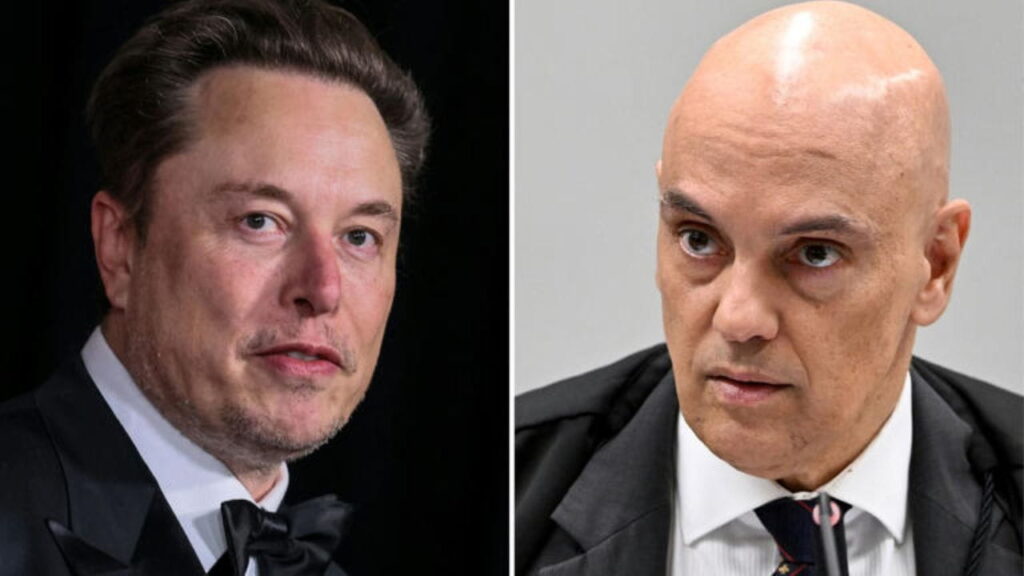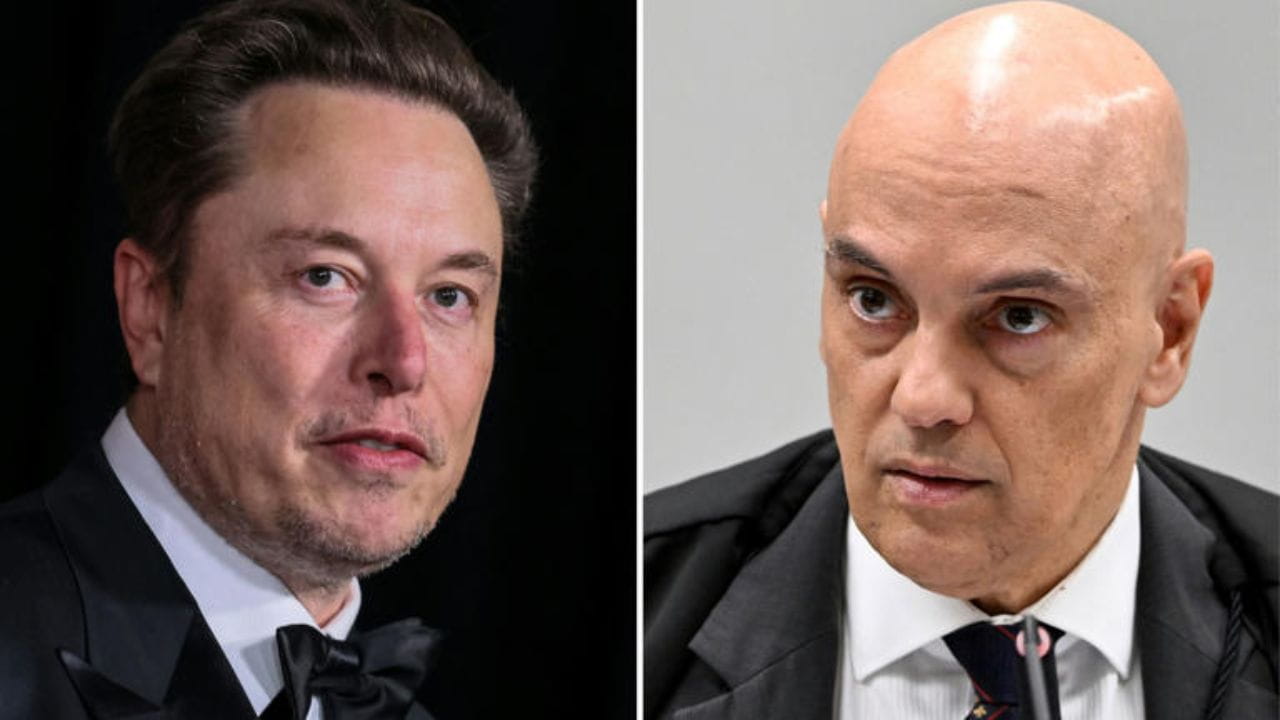Brazil X suspension, Elon Musk Brazil dispute, free speech vs disinformation, Alexandre de Moraes X ban, Brazil social media regulation, X platform suspension, Brazil internet censorship, Starlink Brazil, Brazilian Supreme Court ruling, free speech online, X platform news, Elon Musk X Brazil
Explore the clash between free speech and disinformation as Brazil’s Supreme Court orders the suspension of X, the platform owned by Elon Musk. This article delves into the legal, ethical, and global implications of the dispute, highlighting its impact on Brazil’s digital landscape.

The Background of the Dispute
The tension between the Brazilian government and X (formerly known as Twitter) has been simmering for months, primarily fueled by Justice Moraes’s concerns about the proliferation of fake news and its potential impact on Brazil’s democratic institutions. Brazil, with its 215 million people, represents X’s fourth-largest market, making it a crucial battleground for Musk’s vision of the platform as a “free speech public square.”
The conflict escalated when Justice Moraes demanded that X establish a physical presence in Brazil to address government requests for suspending accounts involved in spreading disinformation. Musk refused, citing concerns about the safety of any representative appointed to handle such matters, as they could be at risk of arrest. This refusal led to Moraes freezing the bank accounts of Starlink, Musk’s satellite company, and issuing a 24-hour ultimatum for X to appoint a local representative. Musk’s response was defiant, vowing to continue providing internet services in Brazil for free until the issue was resolved, even if the company could not receive payments.
The recent suspension of X in Brazil by Supreme Court Justice Alexandre de Moraes has sparked a global debate on the balance between free speech and the spread of disinformation, placing the platform and its owner, Elon Musk, at the center of a significant legal and ethical conflict. The decision, which could impact over 20 million users in Brazil, marks a pivotal moment in the struggle to define the boundaries of online expression in an era dominated by digital platforms.
The Legal and Ethical Implications
Justice Moraes’s decision to suspend X in Brazil has raised serious questions about the limits of government intervention in regulating online platforms. Supporters of Moraes argue that his actions are necessary to protect the integrity of Brazil’s democracy, particularly in light of the disinformation that plagued the country’s 2022 elections and contributed to riots in Brasília by supporters of the defeated President Jair Bolsonaro. Moraes has been a vocal advocate for holding social media platforms accountable for the content they host, leading investigations into fake news and ordering the removal of numerous accounts he deemed harmful to Brazil’s democratic processes.
On the other hand, critics, including Musk, view Moraes’s actions as an overreach of judicial power and a direct attack on free speech. Musk has been vocal about his opposition to what he sees as censorship, not just in Brazil but globally. He has framed the battle over X in Brazil as a broader struggle for the right to free expression, positioning himself and his platform as defenders against government overreach.
The Global Context
The suspension of X in Brazil is not an isolated incident but part of a broader global trend where governments are increasingly clashing with social media platforms over the regulation of content. Earlier in the same week, French authorities arrested Pavel Durov, the founder of Telegram, as part of an investigation into illegal activities on the messaging app, prompting Musk to condemn the arrest as an attack on free speech.
These events underscore the growing tension between governments seeking to curb the spread of harmful content and tech companies that champion the cause of free speech. The case in Brazil is particularly significant because of the size and importance of the market, as well as the precedent it could set for how other countries handle similar disputes with social media platforms.
The Impact on X and its Users
The suspension order has far-reaching implications for X and its user base in Brazil. With over 20 million active users, the platform plays a significant role in how Brazilians consume news, engage in political discourse, and connect with one another. The potential loss of access to X could deprive many Brazilians of a key avenue for expression and information, particularly in a country where social media has become deeply embedded in the fabric of daily life.
Moraes’s order, which also includes directives to Brazil’s telecommunications agency and internet providers to block access to X and to Apple and Google to prevent downloads of its app, represents a severe crackdown on the platform’s operations in the country. The judge’s warning of fines for individuals using VPNs to circumvent the block further illustrates the seriousness with which the Brazilian government is approaching this issue.
In response to the suspension, many Brazilians have turned to alternatives such as Bluesky and VPN services, with companies like Proton reporting a surge in sign-ups as users seek to bypass the restrictions. This shift highlights the resilience of digital communities and the ongoing cat-and-mouse game between regulators and tech-savvy users.
Musk’s Vision for X and the Future of Free Speech
Since acquiring X in October 2022, Musk has made it clear that he envisions the platform as a bastion of free speech, where users can express themselves without fear of censorship. To this end, he has significantly scaled back the platform’s content moderation efforts, reinstated previously suspended accounts, and relaxed rules against hate speech. However, this approach has drawn criticism from those who argue that it allows harmful content to flourish unchecked.
The situation in Brazil presents a direct challenge to Musk’s vision. By refusing to comply with Moraes’s demands, Musk is taking a stand for his interpretation of free speech, but at the risk of alienating one of X’s largest markets and potentially facing severe legal and financial consequences. The outcome of this standoff could have a profound impact on the future of X, not only in Brazil but globally, as other countries watch closely to see how the situation unfolds.
The Broader Debate: Free Speech vs. Disinformation
The conflict between X and the Brazilian government is emblematic of the broader, ongoing debate about the role of social media platforms in regulating content and the limits of free speech in the digital age. On one side are those who argue that platforms like X have a responsibility to prevent the spread of disinformation and protect democratic institutions from the corrosive effects of fake news. On the other side are defenders of free speech who believe that any form of government intervention in online expression is a dangerous step towards censorship and authoritarianism.
This debate is further complicated by the global nature of social media platforms, which operate across borders and must navigate a complex web of legal and cultural expectations. The situation in Brazil highlights the challenges that arise when the values of a tech company’s leadership clash with the legal and ethical standards of the countries in which they operate.
Conclusion
The suspension of X in Brazil is a pivotal moment in the ongoing battle over the regulation of online speech and the role of social media platforms in modern democracies. As Justice Moraes and Elon Musk continue their standoff, the world is watching closely to see how this conflict will be resolved and what it will mean for the future of free speech, both in Brazil and beyond.
The outcome of this dispute will likely have lasting implications for X, its users, and the broader global conversation about the responsibilities of social media platforms in an era of increasing polarization and disinformation. Whether Musk’s vision of a “free speech public square” can withstand the pressures of government regulation and the demands of democratic accountability remains to be seen. What is clear, however, is that the stakes in this battle are high, not just for Brazil but for the future of digital expression worldwide.
Read More
- Stephen Curry Joins $500-Million NBA Salary Club A New Era of NBA Wealth
- Nick Foles Super Bowl LII MVP Retires as a Philadelphia Eagle A Legendary Career Remembered
- Irans Supreme Leader Opens Door to Nuclear Talks With US A Potential Shift in Diplomacy
- What to Expect from Apples September 9 Glowtime Event iPhone 16 New MacBooks and More
